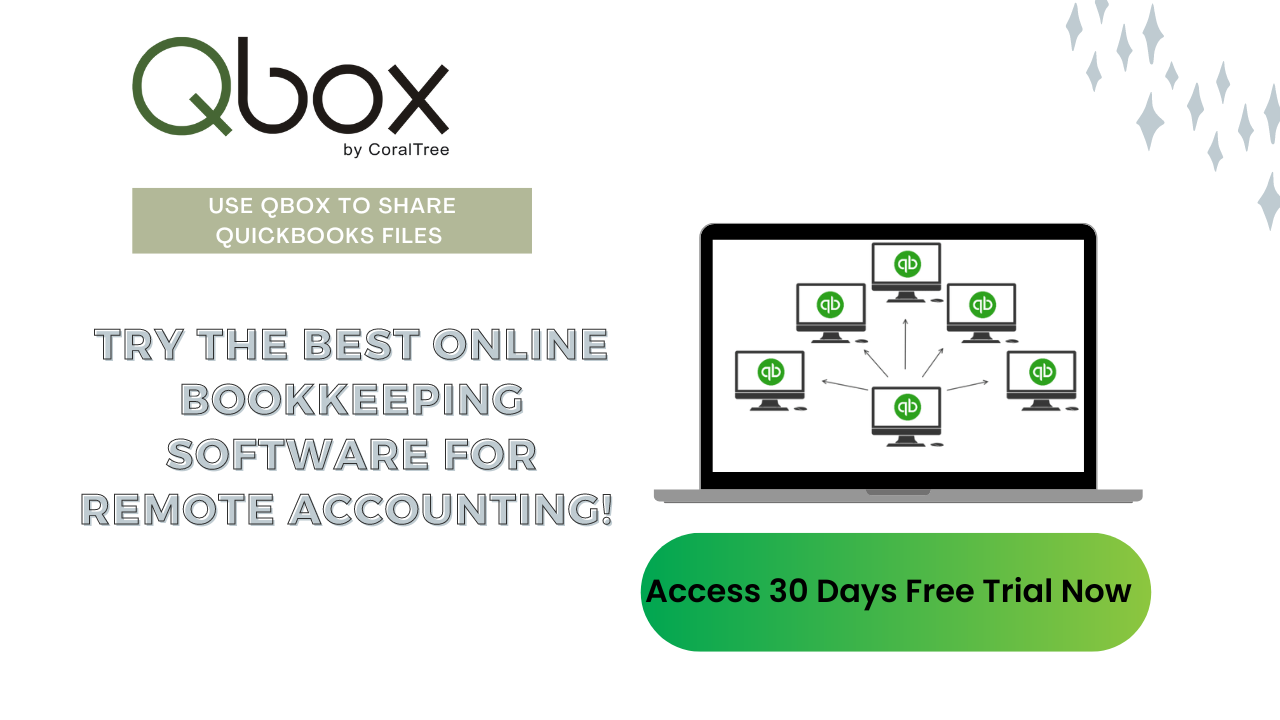Best Online Bookkeeping Software for Remote Accounting in 2023

Contents
Remote work has become ever more popular in 2023, thanks to the rapid digitalization of workspaces and the COVID-19 pandemic. In bookkeeping, an essential component of digitalization is the various remote accounting solutions out there. These work-from-home tools have made life much easier for bookkeepers and accountants and have led to gains in productivity and profitability, among others.
But with a vast number of software for remote workers in the market, how can one precisely determine the best software for bookkeepers? You’ll find out the answer later if you are patient enough to go through this post in its entirety.
What is Bookkeeping Software?
Bookkeeping software is a digital solution or tool used by bookkeepers, accountants, students, teachers, small, medium, and large businesses, and other interested parties to assist them simplify, optimize and better understand accounting principles and procedures.
Majority of modern remote accounting solutions are usually cloud-based and can be accessed on web browsers. They are also mobile responsive, thus making it easy for on-the-go bookkeeping.
Operationally, bookkeeping software helps automate various bookkeeping processes, including file sharing, team collaboration, and more. It’s imperative to evaluate the best bookkeeping software to assist in your firm's automation process.
Remote Bookkeeping Explained
Conceptually, remote bookkeeping is no different from other forms of remote work. It is the offering of bookkeeping services from a non-office location such as your home. In other words, it is virtual work that does not require physical presence in a brick-and-mortar office.
Instead, the remote bookkeeper telecommutes with clients or employees from anywhere in the world.
Remote bookkeeping and other forms of remote work are made possible through the use of a variety of digital computer technologies, including internet connectivity.
These technologies facilitate effective domestic and transnational communication across multiple digital media, thereby removing the barriers placed by geography or distance.
When it comes to work specifics, not much difference exists between the core job roles of a remote bookkeeper or accountant when compared with his or her onsite counterpart.
How Does Remote Bookkeeping Work?
As noted above, the major facilitator of remote bookkeeping is digitalization. A virtual bookkeeper or accountant must be literate enough to consistently and independently operate a computer as well as utilize remote accounting software and other remote accounting systems with little or no supervision.
It is the responsibility of the employer or client to provide the bookkeeper with remote access to company servers, software, accounting books, and other documents
A remote desktop client makes it possible for the bookkeeper to log in to the company’s network from any remote location, e.g., his home. At that early stage, it will also be necessary to download and install the company’s bookkeeping software on his home computer.
Upon successfully tying up all digital ends, the bookkeeper now has a strong communication link with either his employers or customers (or both). Effective communication ensures that everyday work proceeds without many worries.
Digitalization has also made it possible for the bookkeeper or accountant to be compensated for his work remotely. Presently, there are lots of fintech payment platforms that can easily pay a remote bookkeeper in any part of the world.

Best Bookkeeping Software Trends in 2023
Like in most other industries, the bookkeeping/accounting software industry continues to benefit from technological innovation, some of which tend to lower costs and boost productivity. Here are some major trends in identifying the best bookkeeping software.
Automation of Manual Processes
Automation and digitization of repetitive tasks have emerged as some of the most beneficial use cases of bookkeeping software. Modern remote work software enables users to harness instant real-time reports necessary for accurate periodic financial monitoring, assessment, and evaluation.
With these and more capabilities, software is helping business organizations streamline interconnected workflows while saving them much-needed time for non-bookkeeping aspects of business management.
More Hybrid and Remote Work Possibilities
Hybrid and remote work are steadily becoming more popular among companies all over the world, especially in advanced economies with more sophisticated ICT infrastructure. It is now possible for between 20 to 25 percent of employees in these more developed economies to work remotely between three to five times weekly.
This scenario is not only driven by advancements in technology but also the COVID-19 pandemic which has significantly altered the work schedule of many businesses in favor of hybrid and remote work.
According to the Mckinsey Global Institute, increased remote work increases the need for online tools that can help lower long-term costs while quickening financial procedures that would usually take a lot more time and human labor to accomplish.
Potential for New Bookkeeping Specializations
With the increasing role software is expected to play going forward (in terms of dominating most clerical tasks in bookkeeping and accounting), experienced and even prospective bookkeepers could do with non-technology-based specializations that can complement their software technology skills and hence make them more competitive in the labor market.
Areas that have been suggested include more leadership and administrative expertise as well as consultancy. Accountants can also evolve more niche services for some kinds of businesses. But are all these suggested areas immune to the software revolution?
The Best Bookkeeping Software for Remote Work in 2023
Any keen observer of identifying the best bookkeeping software ecosystem will notice a market saturated with a plethora of products and services. While some like QuickBooks have become more established over the years, others are less so, and many struggle for a meaningful presence in a fiercely competitive market. QuickBooks is a great tool that has various ways for accountants to access and work remotely with clients.
You can avoid these unnecessary complications and higher costs by opting for Qbox, the Best online bookkeeping software for remote accounting in 2023 and beyond.
Qbox by CoralTree is the best bookkeeping software, a file-sharing and collaboration software. Qbox supports Intuit QuickBooks, Microsoft Word, Excel, PowerPoint, and Access files, allowing multiple users to share files over the internet as well as work on them without creating conflicted copies.
Features such as Qbox Explorer for folder and file access, Qbox MU for multi-user installations, QuickBooks attachments, and document sharing, offer a powerful yet easy-to-use and cost-effective collaboration solution for users of these applications.
No need to procrastinate. Quickly sign up for Qbox and enjoy the several features and benefits of this awesome solution from CoralTree. Sign-up is easy and won’t take more than a few minutes. New users will enjoy the first 30 days free!

